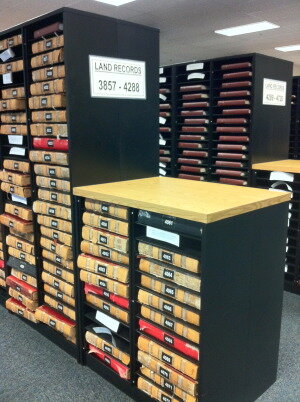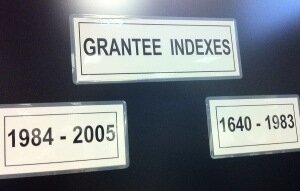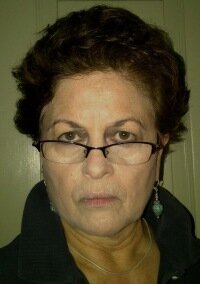History Detectives III: Jane Wild & the Salem Registry of Deeds

Last month I blew an afternoon of my vacation on what proved to be a goose chase at the Salem Registry of Deeds. It was my second trip there, and I’d hoped to research records of real estate transactions in Essex County to learn who built our house and when (History Detectives Part I & Part II). As resident curators, we’re not required to root out this information, but I love a good mystery.
When I arrived, I described my quest to Nancy Doherty, a customer service manager at the front desk. She instantly said, “You need to speak with Jane Wild,” and led me to the desk of this trenchant self-employed title examiner, beekeeper, and grandmother of two, who uses the Registry of Deeds like her personal office. When I asked how she spelled her name, for the sake of my blog, she skewered me with a withering look over top of her glasses and said, “Plain. Jane. Wild.”

Just as precisely, she gave me a few pithy suggestions, and I set about perusing indexes of real estate grantors and grantees for traces of the elusive Dodges on Highland St. in Hamilton.
You have to start with what you know and work backward in time. For anyone new to this story: Our house is in Bradley Palmer State Park. Palmer, a wealthy Boston lawyer who helped to create United Fruit and hobnobbed with General Patton and the Duke of Windsor, bequeathed the land to the state after his death in 1948. The MA Department of Conservation & Recreation (DCR), which runs our resident curator program, told us this much: Palmer had bought our property from Elbridge Dodge, Jr., around 1910. Elbridge, Jr.; his father, Elbridge, Sr.; and possibly his grandfather, Henry Dodge, had raised their families in our house.
We have found no record of any of this information, but it’s all we’ve got. So, starting with these clues, I searched for Bradley Palmer or his lawyers in the index of "Grantees P–Petri 1906–1915." Nothing. Then I searched for Elbridge, Jr., in the index of grantors from the same period. Nothing there either. Jane told me to search abutting lands as well, so I pored over old maps to see who owned parcels of land near our house, and I searched their names too in the grantor indexes. I may have landed a few leads this way, but it’s hard to tell, as properties didn’t have street numbers then, and many of the deeds define land sales according to the colloquial, long-disused names for country roads, meadows, woods, and gulches.
I’d been warned that MA title examiners can be mean and unhelpful. While I suspect that Jane Wild wouldn’t appreciate my calling her “nice,” she was extremely helpful if completely no-nonsense. When I emailed her, after heading home dejected in the rain that day in late May, with nothing to show for my efforts besides photocopies of some old maps, she wrote back right away. She’d read the website and blog, appreciated what she called my “tenacity,” and offered to help me dig a little further once she met a few other deadlines. She’s originally from Ipswich, which encompassed our land until Hamilton incorporated in 1793, so I imagine she’ll be familiar with the historic names of some of the old roads mentioned in the deeds of sale. As president of the West Newbury Historical Society and the Historic Commission, she thinks biographical information will yield more clues about the house.

Anyway, Jane Wild is on the case. Henry and the Elbridges shouldn’t be dodging us too much longer.